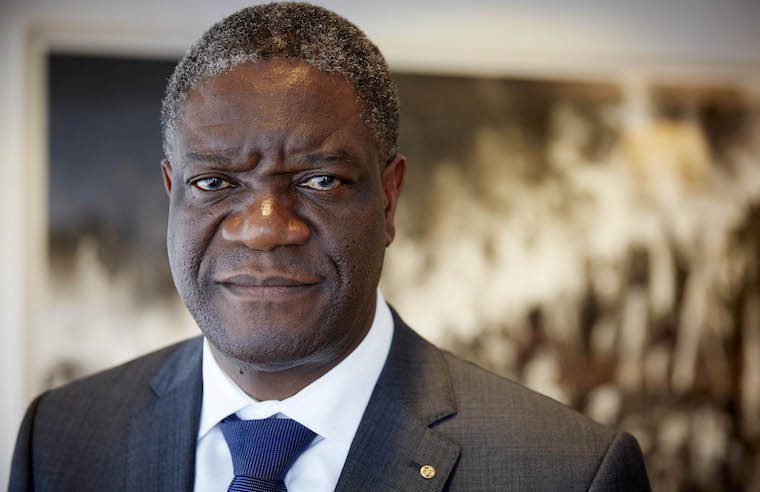The government of President Felix Tshisekedi has decided to ensure protection for the 2018 Nobel Peace Prize Denis Mukwege winner who received new “hate correspondence” for his stance against the perpetrators of sexual violence.
This was one of the main topics of the virtual Council of Ministers on Friday, August 21 chaired by the president of the Democratic Republic of Congo (DRC). Death threats against the “repairer” of women victims of sexual violence had finally resurfaced.
This time, the Council reports in a press release that they follow on from the doctor’s new plea “in favor of peace in the east of the country, by recommending the creation of an international criminal tribunal for the DRC in order to try the serious crimes committed against civilians.”
The objective of this court would be to try all serious crimes committed against the civilian population since the outbreak of the war of the Alliance of Democratic Forces for the Liberation of Congo (AFDL) in 1996, Dr. Mukwege says. At the time, this coalition was made up of dissidents of Mobutu Sese Seko and ethnic groups led by Laurent-Desiré Kabila, while Denis Mukwege was a doctor at the hospital of Lemera, in the Kivu region (east).
But he continues to receive threats from armed groups who feel targeted by his comments. In October 2012, he escaped an assassination attempt in the center of Bukavu, the capital of South Kivu. The keeper of his house had been shot at point blank range.
Faced with this unfortunate memory, President Tshisekedi “urged the government and, in particular the Ministers of Interior and Security as well as Justice, to take all the necessary measures to ensure the safety of Dr. Mukwege and the opening of an investigation” into the new death threats and hate correspondence he has received.
“When crimes go unpunished and criminals continue to live with the victims, all our efforts are dashed,” Dr Mukwege said, less than a year ago in New York, on the sidelines of a UN General Assembly.
“All the armed groups continue to rape and kill in the villages, and these armed groups have connections with certain military commanders who have participated in crimes since the Congo’s first war (1996-1997). And as long as they are not punished, unfortunately they continue to fuel conflicts for their interests,” the 65-year-old Congolese icon denounced.
Foreign countries and organizations, such as the United States, Canada and the European Union, have already condemned the death threats against the Nobel Prize laureate.
For its part, the City of Brussels, Belgium, on Friday August 28, 2020 will launch a campaign in support of Denis Mukwege, the objective of which is to denounce the threats he has suffered these past few days.
ODL/te/fss/abj/APA


